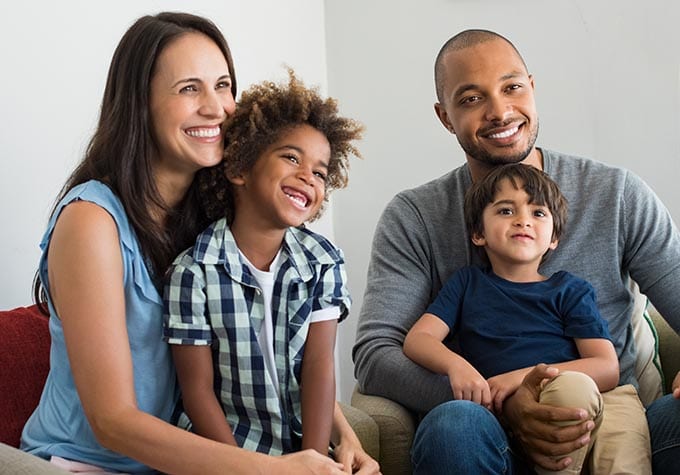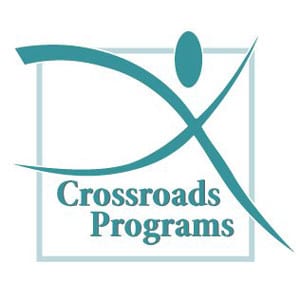Treatment Foster Homes

Young people face many challenges growing up no matter their circumstances. Kids may have two parent households, loving families, great friends, yet still things can go awry. Perhaps they have behavioral issues or they feel uncertain about their sexual identities. Perhaps they have an unexpected pregnancy while still a teenager. A once bright future may now look dim.
Then there are kids who may have never had any of those things and may have been in the child welfare system most of their still young lives. They have only experienced instability long periods of out-of-home placement during childhood and adolescence. The experiences of these youth place them at a higher risk for unemployment, poor educational outcomes, health issues, early parenthood, long-term dependency on public assistance, increased rates of incarceration, and homelessness.
Community Care for Kids

Community Care for Kids provides services to emotionally and behaviorally challenged kids who are not able to live at home, but who are capable of functioning in a home environment with extra support. With the help of caring, trained caregivers in the community, the program provides therapeutic foster care that is individualized to the youth’s specific needs. The goal is to enhance the youth’s ability to live in a community/family setting by working with the youth’s team and community partners in order to stabilize behaviors and reunite the youth with family, or successfully transition to independent living.
The Community Care for Kids program provides family-based residential care, with a focus on specialized behavior modification for each individual child. With the help of caring, trained “professional parents” in the community, the program helps the kids, who are not currently in the child welfare system, to stabilize their behavior so that they can live successfully in a family setting and not be moved into foster care or a residential treatment facility. However, if more intense treatment is necessary the program helps the kids adjust to that level of care.
Working in partnership with care management organizations, the goal is to help the kids transition to more or less restrictive home environment, This may be reuniting with family, moving to a foster home, or moving to a treatment facility, depending on where they are coming from. The program also provides community care for those children who are currently in residential treatment facility, but are ready to move to a less restrictive home in the community with a family.
Crossroads provides our host families with intensive support and assistance on a 24/7 basis. All homes are licensed as treatment homes, receiving ongoing training to continually advance their knowledge, skills, and abilities.
Treatment parents and host families are always needed to help these youth adjust in a community setting. Find out more about becoming a treatment parent.
Become a Treatment Parent Make a difference in the life of a young person by temporarily sharing your home and welcoming them into your family.
Flexible Solutions
 Flexible Solutions provides emotionally disturbed youth, in the child welfare system, immediate placement into short-term residential care, in an emergency situation. With the help of trained caregivers in the community, the program provides family-based residential care that is individualized to the youth’s specific needs. Flexible Solutions provides temporary community-based homes to youth with emotional and behavioral challenges, 5- to 21-years-old, who are in the child welfare system and need short-term placement out of their current environment. The specialized foster care settings with “host families” offer daily care and supervision, along with management services and access to medical care and other needed services. The goal is to provide the youth a safe home environment, helping to stabilize the youth’s behaviors and their ability to live in a family setting. The short-term placement may lead to foster care, residential treatment home, or health facility depending on the youth’s needs. Flexible Solutions also provides an emergency placement opportunity for Atlantic County youth as an alternative to detention. Emergency placement for no longer than three days can also be provided to children in the child welfare system. Treatment parents and host families are always needed to help these youth adjust in a community setting. Find out more about becoming a treatment parent. Crossroads provides our host families with intensive support and assistance on a 24/7 basis. All homes are licensed as treatment homes, receiving ongoing training to continually advance their knowledge, skills, and abilities.
Flexible Solutions provides emotionally disturbed youth, in the child welfare system, immediate placement into short-term residential care, in an emergency situation. With the help of trained caregivers in the community, the program provides family-based residential care that is individualized to the youth’s specific needs. Flexible Solutions provides temporary community-based homes to youth with emotional and behavioral challenges, 5- to 21-years-old, who are in the child welfare system and need short-term placement out of their current environment. The specialized foster care settings with “host families” offer daily care and supervision, along with management services and access to medical care and other needed services. The goal is to provide the youth a safe home environment, helping to stabilize the youth’s behaviors and their ability to live in a family setting. The short-term placement may lead to foster care, residential treatment home, or health facility depending on the youth’s needs. Flexible Solutions also provides an emergency placement opportunity for Atlantic County youth as an alternative to detention. Emergency placement for no longer than three days can also be provided to children in the child welfare system. Treatment parents and host families are always needed to help these youth adjust in a community setting. Find out more about becoming a treatment parent. Crossroads provides our host families with intensive support and assistance on a 24/7 basis. All homes are licensed as treatment homes, receiving ongoing training to continually advance their knowledge, skills, and abilities.
Become a Treatment Parent Make a difference in the life of a young person by temporarily sharing your home and welcoming them into your family.
Project Discovery

Project Discovery provides lesbian, gay, bisexual, transgender, and/or questioning (LGBTQ) youth, who are not able to live at home, but who are capable of functioning in a home environment with extra support, residence in a community-based treatment home. The program was designed to work in partnership with the community to provide a therapeutic family environment that addresses social, emotional, and/or behavioral difficulties, along with individual LGBTQ issues, to help the youth stabilize in a community setting.
The pressures of adolescence are multiplied when youth begin to have sexual preference or sexual identity questions and curiosities come into play. It is a time they begin questioning if there is something wrong with them and if they can trust talking about these specific feelings with others. Without good supports, LGBTQ youth face a far greater chance for adopting high risk behaviors and/or depression.
Our skilled and compassionate treatment parents provide support, mentoring and a safe stable environment for them through this stressful time.
Become a Treatment Parent Make a difference in the life of a young person by temporarily sharing your home and welcoming them into your family.
For additional program information for Project Discovery, click here.
